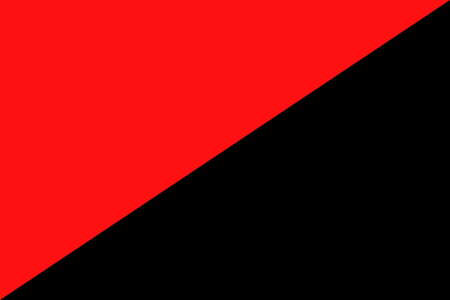... Often I have much to say, but when it comes time to write things down I end up -- hesitating. When I asked one of my friends for advice on what to do in such a situation he said I have two options: wait until I had something to say, or force it. I have decided to take the later, since, a little practice never hurt anyone; and, usually when I do have something to say in the process of pouring it out I spill my emotion to quickly and lose steam -- or work it over until it is completely meaningless, or devoid of sentiment. Therefore -- before this devolves into the kind of self-centered, stream-of-consciousness blogs I'm used to writing --
Notes on a title:
(Before I begin, allow me to situate myself...) The words Karuppu and Sivappu in Tamil mean quite simply: Black and Red. These colors mean a great deal more to me. I am a Sri Lankan Hindu Tamil, born in England, and raised in the United States. I have come to understand my history at the intersection of many narratives ... many threads in a narrative web of existance -- perhaps it is fitting that in Tamil the same word can mean both thread and narrative: நூல் (nūl). I understand myself as having inherited the struggle against the discrimination that my parents faced in Sri Lanka, the legacy that British colonialism had sewn reaping cycles of hatred, ethnocentrism, recrimination. I see reflections of that legacy in ethnic conflicts, oppression, injustice, and neocolonial exploitation around the world. But I stand in a position of privilege relative to my brothers and sisters who never made it out of Sri Lanka -- who two years ago faced the bombs and the slaughter, who two years later still cannot return to their homes, and face de facto status as second-class citizens. How do I come to terms with being born in the country whose empire enslaved my people (and scattered them so my language is spoken as far and wide as the West Indies and Singapore; Tanzania and Dubai)? I find solace in the words of Black poets and intellectuals -- struggling against oppression in the United States, the culture where I was raised -- who understood ... double consciousness, being a Westerner to my people and an Immigrant in the west ... But the hardest to swallow is that feeling of guilt -- the shame of this privilege sticks in my throat.
I feel that the culture that raised me is not the culture of America. Nor is it the culture of England (although, admittedly, my time in England was the brief first two years of my life), nor -- I am ashamed to say -- is it entirely the culture of my mother and father (although I cling to that most dearly -- and seek it out voraciously). The culture I have come into is one that spans the globe -- one that reaches across divides and attempts to build bridges, make connections -- it is a culture of resistance. I have read, felt, imagined, celebrated, laughed and wept with Native Americans (Ojibwe, Lakota, Pueblo, Navajo, Cherokee, Chumash), Palestinians, Zimbabweans, South Africans, Filipinos, Blacks, Mexicans, Salvadorians, Chileans, Nigerians, Indians, Jews, Pakistanis, Iraqis, Persians, the Irish, Haitians, and peoples of many other nations. This is not a laundry list of people with whom I am in solidarity... it is a reminder that the world is full of stories.
But what does this have to do with black, or red, or any color for that matter? Recently I have been reading words about and from the Ejercito Zapatista de Liberacion National (the Zapatista National Liberation Army, or EZLN for short) -- words that have spoken to me, particularly when they say, "The world we want is a world where many worlds fit..." and, "Everything for everyone, nothing for ourselves." Red and Black are the colors of the battle flag of the EZLN -- and the colors of the anarcho-syndicalist/anarcho-communist flag pictured above; they are also the colors of the ruling party of Tamil Nadu in India (the DMK -- a party which hardly seems to stand for anything anymore ... but whose historical ideology was the advancement of Dravidian peoples). And, although it is politically and socially problematic to call myself Black in the United States, I have always identified with the color (not the anthropological construct we call the "race" with whom I stand in solidarity) -- the black sheep, the black night, the dark of my skin (the shame of saying "brown" because brown is the color of mud)... Is it a small wonder that the English word "pariah" derives from a Tamil word? Red is for the blood that flows through my veins, for the color of the LTTE flag that gave me a profound mixture of hope, shame, ambivalence and confusion growing up, and for the color of the kungkumum that my grandmother used to apply to her forehead with the back of a nail.
So I think Black and Red is a good starting point.
In Solidarity,
DC
... I must say I have rather done exactly what I said I wouldn't insofar as writing a self-centered, stream-of-consciousness post. Oh well; practice makes perfect. And a short semi-biography is not a bad start I suppose...

No comments:
Post a Comment